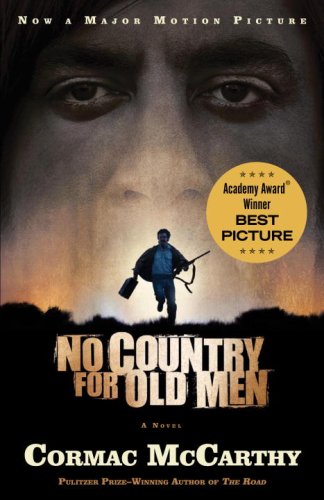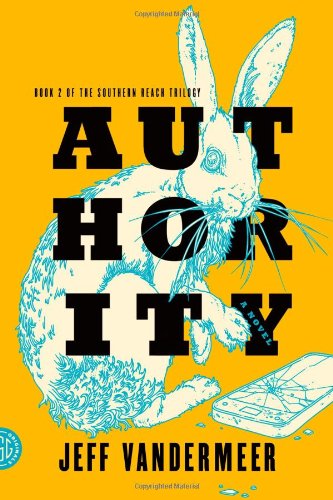The Labour Party has many flaws and clearly needs to rebuild, both its own beliefs and its relationship with the electorate. As a thought experiment - obviously clearly based on my own decades of deep involvement with political planning and strategising; someone send this to Labour HQ pronto - I wondered how you’d go about reestablishing the party for the modern age. This lengthy essay is therefore that. It may all be wrong, and a large part of it is simply wishful thinking, but that’s the joy of thought experiments: they’re ones that will likely never, ever be put into practice.
The problems
Muddled messages: The last campaign was a flop, trying too hard to be all things to all people rather than sticking to core principles, leaving measures like an end to the bedroom tax and non-dom status to float in a sea of mediocrity.
Disconnect from voters: While this is a problem for all parties to some extent, the rise of a professional political class has affected Labour most. The concerns of the middle and upper classes are most similar to those of professional politicians, so the Tories and, to a lesser extent, Lib Dems are a closer match, albeit by accident, for their core voter demographic. Labour’s top dogs are a world apart from their traditional supporters, and this lack of connection has allowed parties like UKIP, rightly or wrongly, to sneak in.
Old Labour is disconnected too, to some extent. The working class has changed with the gutting of manufacturing and the weakening of the big industrial unions. Outside the (comparatively) few remaining industrial areas, the modern working class are self-employed, shop staff, delivery drivers, call centre workers, people on minimum-low wages, white collar as well as blue, part time or unemployed. They’re increasingly the young, too. And more and more of them are immigrants to this country.
Reputation issues: Labour has a reputation for financial mismanagement from the crash of 2008 (ironic, given Brown’s previous reputation for steady fiscal policy in his years as Chancellor), and for lying over Iraq during the Blair years. Both have left people with the impression that the party is fundamentally untrustworthy on big issues.
Awful media relations: The British press is, in the main, openly hostile towards the party, and have a history of pulling front-page hatchet jobs and outright lies, with maybe a small, inconsequential retraction a few days later. Blair managed to swing it a little for a while, but that was as much down to the Major government’s inadequacies as anything else.
Very poor support outside the big cities: Whether as a result of a lack of engagement or wealth distribution, Labour does very badly across much of the country. Rural left-wingers in the South are more likely to vote Lib Dem than Labour and in other parts they’re turning to UKIP or nationalist parties.
Scotland: Choices made during the ’No’ campaign and failed attempts to drum up anti-SNP sentiment, not to mention a catalogue of failures, gaffes and the inability to come up with a reason why Scots might want to stick with them saw a revenge thrashing north of the border.
Boundaries: This Parliament is almost certain to see boundary changes. It’s hard to make a definite case against them in principle (though there may well be in the details) because there are clear inequities in the present system due to population shift. Changes will make it harder for Labour to win outright because the current ones make it too easy. Labour are going to have to lump this and plan accordingly, because if it comes up in the Commons, only a backbench rebellion will defeat it.
The assets
Existing support: Yes, it’s been drifting away for more than a decade, but Labour still has plenty of members, infrastructure and influence, minor or major, across most of the country. It can’t outspend the Tories and shouldn’t try, but it has some funds and plenty of manpower, in theory at least. Union backing is a double-edged sword, but it still counts for something.
Reduced Blairites: While they’re still around in patches, the last couple of defeats - and the Milliband leadership - have seen ’New Labour’, with all its post-Iraq tarnish, largely shaken off or at least shunted into the background.
Economic inequality: While the overall economy may have recovered a little from the crash, much of that recovery has been concentrated at the top and in London. A great many people are continuing to struggle with poverty, with a difficult jobs market, with the cuts to public services imposed by the last government and the massive fresh ones coming in the next. There are also likely to be another 1-2 million public sector workers sacked in the coming Parliament. These are the people Labour should be representing.
A fresh start: It’s easier to rebuild completely when everyone accepts that the old structure is rotten.
The solutions
So, you’re Labour and that’s what you’ve got to tackle and that’s what you’ve got to work with. What do you do?
Build up from the bottom: You lack grassroots connections and clear support. Get back involved with those most needing help. Start by reaching out to the new working class and the disadvantaged, rural as well as urban. Get to know what their problems and concerns are, and turn those into policy.
But to foster connection, you need to offer something concrete now; the next election is five years off. You need to show that you can - and will - give something back to those who need it most. Your union past should help here, because while the new working class aren’t heavily unionised (apart from anything else, jobs are so short-term now that it’s hard to hold a workplace together), you know what unions traditionally offer (or are supposed to offer) workers. You can do that too, ad-hoc. This should be something you’re good at. Use your network of volunteers, members and supporters to hold local drop-in sessions across as much of the country as possible, offering guidance on finding work or childcare, on dealing with paperwork, bureaucracy and local authorities, on workplace rights and finding representation, on financial assistance and management, on parenting on a pittance, on voter registration and where to find impartial political information. Forge links with your local communities by actively helping them regardless of whether or not you’ve been elected there. Follow-up, don’t forget. Make friends. Don’t push the party, don’t tout for votes, don’t involve politics at all if possible. If you do it cynically, you’ll lose voters. But you have all the resources needed to pull off this kind of operation. The old, old days of a Labour club in every town centre are gone, but there’s nothing to stop you creating a replacement for the modern era.
And listen. Use what actually concerns real people to form policies and priorities higher up. And where you can’t make something policy, be sure that there’s a pipeline by which you can explain yourselves, cleanly and clearly without wriggle words. Don’t talk down to people (something you’ve been prone to doing the last few years). Carry that all the way up to the top.
Such a move would likely initially be met with cynicism and derision, and it would eat into party funds (though probably not as much as it might; you’d probably have to cut back a couple of big PR events a year), but stick at it.
I can’t, off the top of my head, think of a better way of reconnecting with your core support on a fundamental level. It’s not enough to encourage people to vote for you; you need to show that you’re their party, not just tell.
Do the same thing online: You can’t get to everyone in person, but running advice and support online is relatively cheap and simple. Borrow from Howard Dean’s 2004 run and make proper use of the internet. Don’t push the party or for votes - we’re not the US and that won’t fly - but engage with people.
Link worker to employer: Help out too by talking with local businesses and promoting schemes to get people into work and to ensure fair conditions and good workplace relations. You’ve got union connections; use them. This connects you on a more personal level to business owners. It won’t help the wider perception of your financial skills, but it’ll dispel the notion that you’re anti-business without you having to sell out your supporters.
Soothe the middle class: You spent the Blair years avoiding ‘tax and spend’ and largely did a good job of it, so remind people of that. Protect childcare provisions, restrict tax rises to those who can afford it - and point out that that’s why you’re doing it. Carefully cost and cover every policy you introduce. Show your working out. If you need to, point to the past government’s mismanagement on this score.
Dispel misinformation, don’t employ any yourself: One of the early moves of the Obama White House was to offer their own fact-checking via the White House blog. Employ someone to correct false claims (like that Times “Labour will cost families £1,000 a year” front page they later retracted) quickly, succinctly, and with cross-linked citations. Make it shareable through social media. Make sure spokespeople follow these and can refute claims in person when needed, knowing they’re backed up by data. The flip side is to stop using refutable claims yourselves. Have cites. When you speculate, say you’re speculating. Don’t leave anyone a “gotcha”. You’ve gotten better at this in recent years, although perhaps largely by comparison. Keep getting better at it and it will help shake off the mistrust left over from Blair.
Own your mistakes: Accept past failings, show how you’ve learned from them. Point out, where your opinions have changed, that it’s madness not to change your mind if it turns out the evidence is against you; doing otherwise makes you an idealogue (as with “prosperity through austerity”). Don’t try to dodge them. Again, don’t leave a “gotcha”.
Listen, then set out your stall clearly, and back it up: Stop trying to be the Tories. They’re much better at it than you. If you reconnect with your core demographic, focus on what needs to be done to make their lives better, then work to point out how doing so will also help those beyond. Don’t try to be everything to everyone. Where you disagree, do so firmly, and back up your arguments with evidence. People will respect that more than if you try to slide around them. Claiming “we will control immigration” last time out made it obvious you were trying to keep up with the UKIPs out of fear, not out of personal belief on the subject. There were arguments to be made - and plenty of people made them, just not you.
Don’t allow other people to control the conversation: The Tories deliberately pushed you into talking about the SNP all the time. All you needed to say was: “Until the election happens it’s pointless discussing things, but if any kind of coalition is necessary then every responsible party would seek compromise and common ground where it can. Maybe it could be, maybe it couldn’t. Since the SNP are a democratically-elected party no different to any other in the Commons, why should we treat them any differently? Or are you suggesting we should ignore Scotland’s electorate?” (Not that you could, having tried to drum up anti-SNP sentiment the year before.)
Be confident in where you’re standing - and the grassroots support you have, if you have it, vitally - and you leave the opponent with nowhere to go. The Lib Dems in the 90s were quite clear that they wanted to scrap council tax and replace it with a local income tax, and to raise the top rate of income tax to 50%. Lots of people didn’t necessarily agree with them, but there was comparatively little hay to be made of those policies because they were so clear and open about them. They knew their supporters backed them, and they didn’t have to keep them a secret or fudge their commitment to them.
Sort out your Scottish arm: Frankly, it’s a mess. If Scotland remains part of the UK after this parliament - and let’s not bank on that - you need to offer something to the country that the SNP, which has already occupied much of your old socialist territory, doesn’t. Make up with the SNP as well because an unnecessary chip on your shoulder is deeply unattractive.
Ignore the press: Seriously, they’re never going to like you, so stop bothering to try. People, especially the young, will respect you more if you stand up to Murdoch and his ilk than if you keep trying to play nice. This is another reason to make sure of your ground before making claims, and be absolutely scrupulous in how you operate, because everyone but the Guardian will be looking to cut you off at the knees. Again, own it.
Forget immigration controls: Again, others are going to own this battlefield. Many immigrants - who are eligible to vote, don’t forget - are within your key demographic. Point to the plethora of evidence that in a stable economy, immigrant workers are net contributors to the economy and that they don’t reduce the job market (since they’re also spending, and spending supports further jobs). Fix the economy and keep it stable, and immigration at its normal rate ceases to be an issue. You’ll take a battering from the press again, but stick with it because you cannot win by aligning with the right on this.
Forget benefits: Benefit fraud is miniscule, “shirkers” are few and far between, after pensions most benefits are paid to those in work and not out of it, and people get off JSA not by being sanctioned or put through workfare but by the economy picking up and more jobs being made available. (Not that this will happen endlessly; ever-greater automation, centralisation (compare staff numbers in warehouse + online operations vs. warehouse + local retail outlet operations) and corporate efficiency drives mean that the jobs market in many sectors will contract over time.) Unless you’re thinking of costing a universal citizen’s income, forget getting sucked into benefits arguments and concentrate only on economic growth. Just don’t forget to explain why.
Forget the wealthy: You’ve got wealthy backers, people with cash but also an ideological inclination towards doing good for those less well off. You don’t have to court those people, and you don’t gain anything by trying to court those who don’t share those beliefs; they have nothing to gain from voting for you anyway. Don’t arbitrarily stiff them, but concentrate your efforts on the grassroots up, not vice versa.
Solve housing: This ties into the last, and it’s a big one. We all know the pressure on housing availability: soaring rents unmatched by wages, soaring prices that push ownership beyond many, low rates of building, a rising population. This really, really needs fixing, and it’s one of the few areas where the old Labour love of ‘benevolent big government’ is going to be the only way of doing it. Left to the market alone, housing will only become more of an issue. Maybe it’s rent controls (with, say, some kind of minimum income-protection provision for single-property landlords like those relying on rent for retirement). Maybe it’s a mansion tax with a protection for those who’ve simply lived in one place in London for long enough that they’ve ended up owning something worth a stupid amount of money through no real fault of their own. Maybe it’s some kind of clever mechanism for connecting a per-size price cap with local average earnings. Maybe it’s a subsidy for new, sustainable housing funded by a tax on large, old properties. I’m not an economist, but you employ plenty of them. Get cracking on this, and make absolutely sure you check your facts and figures because it’ll be controversial, you’ll take another hammering from the Mail, and you’ll have to sell it to the middle class. It’s an area where you could really set out your stall, though. Your core voters need somewhere to live, and the middle class have kids who are already struggling to earn enough to leave home.
Solve pensions: No one likes to suggest the state pension is in danger, but we all know it is. As the population lives longer, the pot has to stretch further. Again, I’m not an economist, but old people vote, and anything you can come up with that protects pensions even a little will be a massive winner.
Back the NHS: The Tories are massively weak here, and you should’ve made much more of it last time out. Very few people want to see privatisation, and there’s plenty of evidence for it happening should you want to point people at it, and not a lot the Tories can do to wiggle around it.
Couch as much as you can in terms of fairness: As a nation, we tend to think of ourselves as quite a fair bunch. It’s easier to sell - or harder to argue against - a 50% upper tax rate, say, if you point out just how many teachers such a rate rise will employ or how many public services or basic pensions it’ll fund. If you’re going to take, explain what you’re going to give in return. Don’t promise something for nothing and try to weasel around mentioning what the actual cost might be.
Have people who talk like human beings: Stop making so many of your top people those with little life outside politics, and if they are, at least allow them to relax a little in public. It makes them come across like robots carefully programmed to avoid making a promise they can’t go back on. As much as it pains me to say so, you could learn from UKIP here. Farage’s bluster and “man with a pint” image might be a load of tosh, but at least he sounds human. Humans, it turns out, respond well to humans.
Explain as much of it as possible in two sentences or less: Blair almost single-handedly popularised the policy sound bite. And say what you like about him, he knew how to get elected despite such controversial policies as introducing a minimum wage (in the teeth of opposition from both Tories and, to their discredit, Lib Dems). Two lines, what and why, and how if you’ve got space. This is the digital age, so if you’re doing it in text or in press release, have cites and links to proper explanations ready. But keep your messages tight, specific, and easy to digest.
Don’t build a sodding obelisk: Seriously, just don’t.




